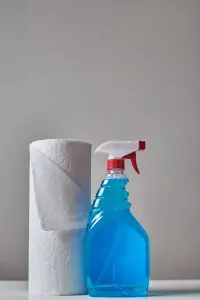When it comes to storing chemicals at home… Know your role and keep your children safe.
Today’s guest post article comes from Lynn Place, Vice President of Marketing for SolvChem Custom Packaging Division, who shares a great infographic on the topic of household chemical storage. Properly storing and securing chemicals in your home and keeping them out of the hands of children is very important and must not be an after thought. As a parent, I couldn’t agree more.
What to do if you or your children are exposed to a household chemical or poison
If you or someone in your home is exposed to poisonous chemicals, please call the Poison Help Line at 1-800-222-1222 or visit PoisonHelp.org.
Thanks for the great infographic, Lynn.
– Will
Advertisement
Household Chemical Storage Guide

For instance, many incidents occur for the simple reason that someone didn’t know what a particular bottle or can contained. Labels may become faded or worn off with time, or containers may be repurposed to hold other products. Making sure your bottles and cans are all clearly labeled and kept in their appropriate storage areas is key to preventing this type of mistake. It’s also a good idea to check every container for signs of leaks or cracks that could lead to hazardous spills. For these and other tips to help you understand the proper management of cleansers and other commonly used household chemicals, see the accompanying guide.




